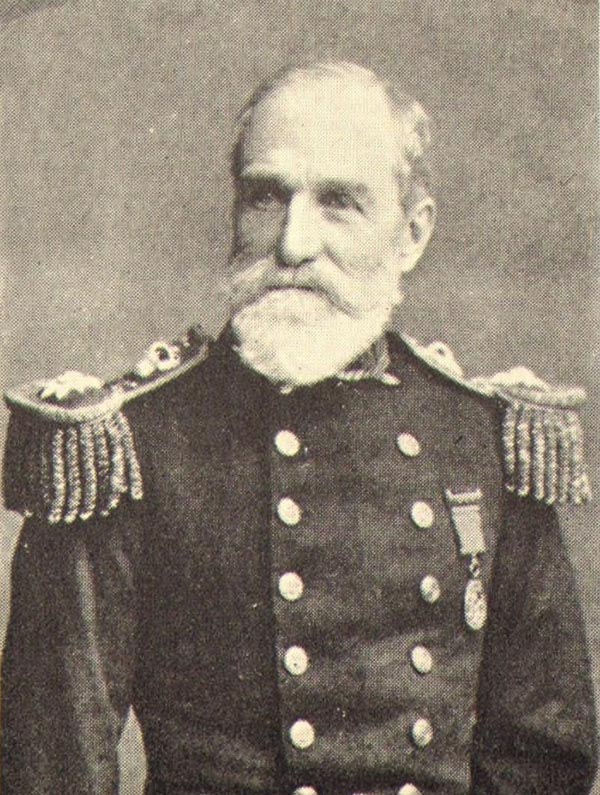William James Lloyd Wharton (March 2, 1843 - September 29, 1904) was a British naval officer and hydrographer active in the second half of the 19th century. Wharton was born in Cape Town South Africa and received his early education at Barney's Academy, Gosport, before attending the Royal Naval Academy. He joined the Royal Navy in August 1857. His first surveying work was on the Bay of Fundy as an officer of the HMS Gannet. In 1870, he was part of the HMS Urgent expedition to observe a total eclipse of the sun in Gibraltar. He was promoted to commander in 1872 and assigned to the HMS Shearwater, where he led hydrographic surveys of Sea of Marmora and the Bosporus, the Mediterranean, and the Indian Ocean. In 1874, Wharton was involved in preparations for observing the first transit of Venus in the Indian Ocean. This work established an accurate longitude for the Seychelles, which Wharton would use as a basis for his African surveying work in the following years. From 1876, as captain of HMS Fawn he surveyed the seas off East Africa. He was promoted to captain in 1880, and for the next two years compiled a manual on hydrographic surveying. In 1882, he was appointed to HMS Sylvia and sent to survey parts of South America, where he observed the second transit of Venus in December 1882. On August 1, 1884, he was appointed Hydrographer of the Navy, a post he held for the subsequent 20 years. In 1895, he was promoted to rear-admiral. He died of enteric fever at the age of 62 in Cape Town.


